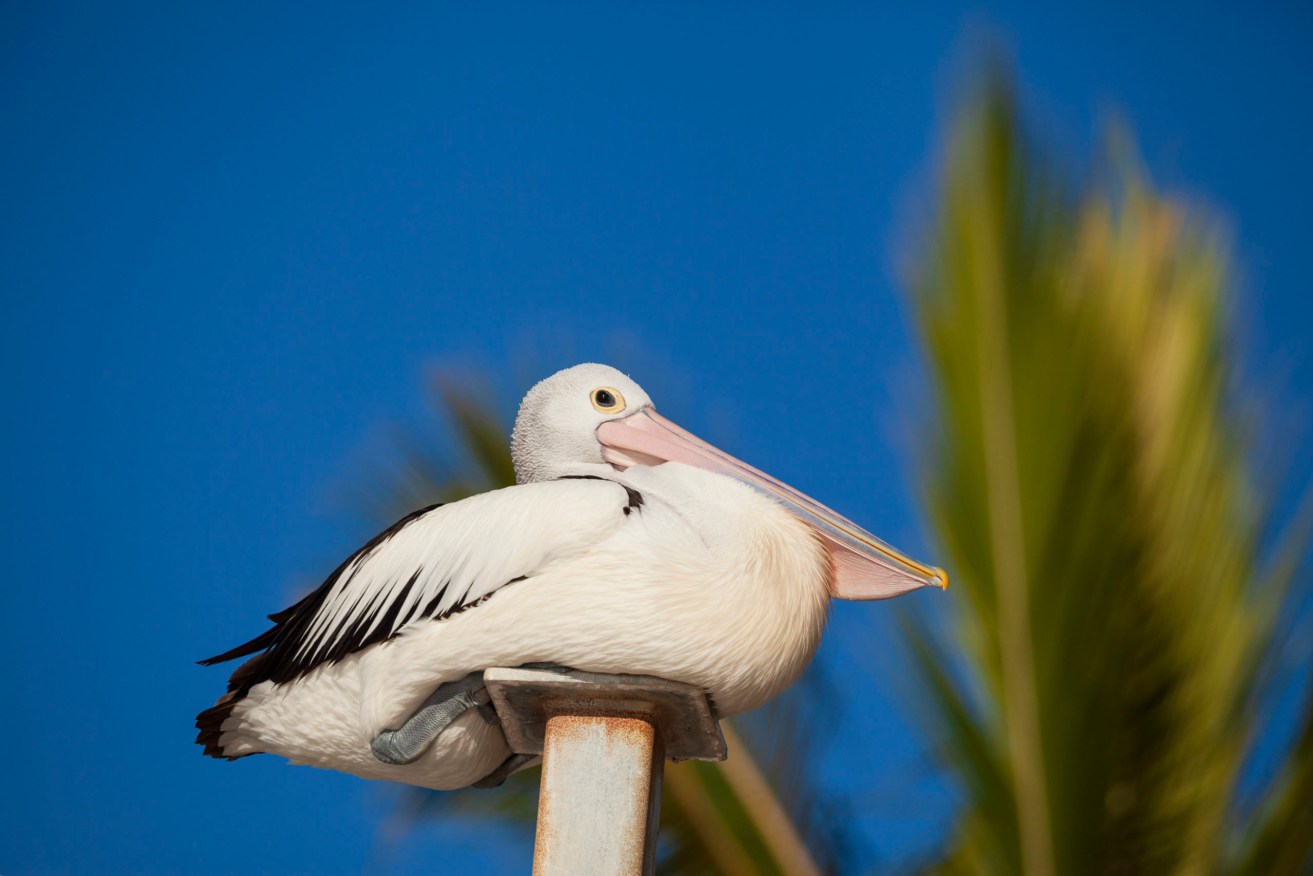Pelicans and the plastic pandemic – now masks multiply threat to birdlife
Seabirds, such as the iconic pelican, are at risk from a growing amount of discarded plastic found in Gold Coast waterways.

Disposable masks have only added to the environmental pollution risk to seabirds such as pelicans. (Photo by Joshua Prieto / SOPA Images/Sipa USA)
Amy De Boer, a veterinary nurse from Currumbin Wildlife Sanctuary, said large seabirds could suffer, and potentially pass on health problems to their offspring, if they consumed plastic contamination.
“We need to be mindful as Gold Coasters,” De Boer said.
De Boer said two thirds of all fish were impacted by the introduction of plastic within their ecosystems. When asked about trends during the COVID-19 pandemic, De Boer noted that some large seabirds had become entangled within the cords of discarded masks, and more plastic packaging had been discarded.
University of Queensland marine biologist Kathy Townsend had previously told the Australian Parliamentary Committees on Environment and Communications (APCEC) that “on a global scale Australia has been recognised as a hot spot for [plastic ingestion] for both seabirds and sea turtles”.
According to a study by Jenna Jambeck, a University of Georgia engineering professor, an between 5.3 million and 14 million tons of plastic can be found in coastal regions due to careless dumping, and “over 40 per cent of this waste is single use plastics.”
In December, the Palaszczuk government introduced legislation to ban single-use plastic items, starting with straws, stirrers, cutlery and plates, and is expected to also ban polystyrene food containers and cups.
North of the Gold Coast, the town of Jacobs Well has seen an increase in fishermen and boaties on local waterways. Steven Rowell, principal of Jacobs Well Environmental Centre, said that came with an increase in waste; ‘ghost’ nets and ‘ghost’ crab pots, fishing lines, bait bags and fishing hooks were often found within or wrapped around animals such as birds and fish, specifically plankton.
He was also concerned about bioaccumulation, the collection of microplastics, commonly found from the remains of biodegradable products, within an environment, saying it was important for people to be aware of the effects of microplastics within a food chain due to the negative effects plastics has within the digestive systems.








